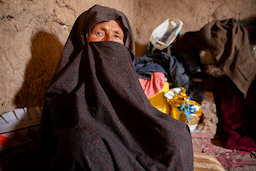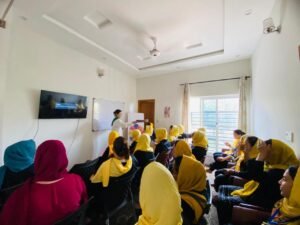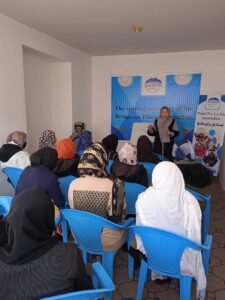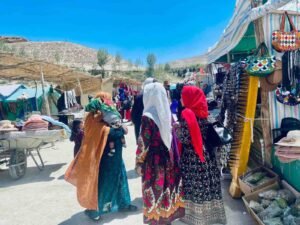The Need for International Recognition of Gender Apartheid in Afghanistan

Central Kabul, August 2023. Photo: @AADIL
By Nazila Jamshidi
Over the past two years, the leadership of the Taliban has created a governance system that systematically oppresses women, perpetuating sex discrimination throughout Afghanistan’s political, legal, and cultural structures. This period has exposed their unwillingness to uphold the promises made regarding women’s rights during the Doha Agreement negotiations with the United States and in their early days in power to the people of Afghanistan. Instead, they are actively implementing measures that signify a large-scale, systematic violation of women and girls’ fundamental rights in Afghanistan, effectively institutionalizing a framework of gender apartheid, as highlighted by, Richard Bennett, the U.N. Special Rapporteur on the situation of human rights in Afghanistan.
In her thought-provoking research article, Karima Bennoune, the Lewis M. Simes Professor of Law at the University of Michigan Law School, asserts that gender apartheid represents a grave violation of women’s humanity and should thus be categorized as crimes against humanity. Bennoune argues that “Gender apartheid is anathema to foundational norms of international law, every bit as much as racial apartheid was to the identical principles prohibiting race discrimination. Ultimately, as racial apartheid was for Black South Africans, gender apartheid is an erasure of the humanity of women.”
Remarkably, gender apartheid is not classified as an international crime under the Rome Statute. However, a coalition of Afghan legal experts, activists, and women leaders, joined by counterparts from societies confronting similar challenges, have launched various campaigns to bring attention to the plight of women living under gender apartheid in Afghanistan. These campaigns include initiatives like “End Gender Apartheid,” “Recognize Gender Apartheid in Afghanistan,” and “End Gender Apartheid in Afghanistan.” Notably, Tammana Paryani and several other Afghan women activists recently established a camp in the German city of Cologne, where they embarked on a 12-day hunger strike to appeal to the international community to officially recognize the Taliban’s systematic discriminatory policies against women as “gender apartheid.” These campaigns and hunger strikes serve as powerful calls to action for governments to take measures, including expanding the legal definition of apartheid within both international and national laws to encompass gender apartheid.
But what would happen if gender apartheid in Afghanistan were internationally recognized?
As Professor Karima Bennoune suggests, international recognition of gender apartheid in Afghanistan could lead to the development of a robust international legal framework, mirroring the one instrumental in ending racial apartheid. This recognition could also trigger coordinated responses from other nations. Tammana Paryani’s 12-day hunger strike underscores the potential significance of this change. Much like the international legal framework that addressed racial apartheid aimed to compel states to isolate, condemn, and exert pressure on the apartheid state, international recognition of gender apartheid could lead to unified governmental and international responses to the Taliban’s regime of gender apartheid—a matter that has been approached ambiguously by various states over the past two years. Some countries maintained diplomatic and economic ties with the Taliban, even welcoming their diplomats, while others refrained from engaging with the Taliban and emphasized the importance of respecting women’s rights as a prerequisite for any engagement.
The recognition of gender apartheid at the international level can streamline the international community’s response to the Taliban’s systematic discrimination against women. It would send a powerful message to the Taliban that the international community refuses to tolerate the suffering of Afghan women and any regime committed to gender apartheid. While some may question whether recognizing gender apartheid will lead to any response beyond the condemnation of the Taliban’s actions over the past two years, it will serve as an indication to the Taliban that the international community is persistent in its commitment to upholding human rights principles and the provisions outlined in international laws and conventions.
In a world that values human rights and equality, the recognition of gender apartheid in Afghanistan is not only a moral imperative but a necessary step toward justice for Afghan women.
Nazila Jamshidi – a gender equality and human rights specialist involved in Afghanistan’s development and democracy processes for the past decade – has worked for the UN, USAID, the International Federation of Red Cross.
Note: The contents of the article are of sole responsibility of the author. Afghan Diaspora Network will not be responsible for any inaccurate or incorrect statement in the articles.











